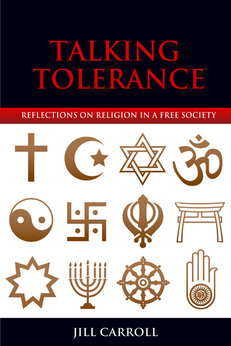Orthodox Jews - And Reform, Conservative & Secular Jews
Orthodox Jews, Reform Jews, Conservative Jews and secular Jews are the most influential and important groups within Judaism in the modern period.
Orthodox Jews are those who maintain the most traditional beliefs and practices of the religion. They strictly observe the dietary laws (called "kosher" or "kashrut") and the practices of the sabbath, and are often marked by their ways of dress and appearance. Men undergo the ritual of circumcision when infants. As adults they wear black suits and hats, and sometimes allow their hair in front of their ears to grow into long curls. Women sometimes wear hats or other head coverings, and dress modestly. Orthodox synagogues are gender segregated.
Reform Judaism began in the 19th century as a movement designed to bring Judaism into line with the ideas of the western European enlightenment. Reform Jews reject outright what they see as the dogmatic, outdated practices of Orthodox Jews and focus on the ethical dimensions of the faith instead of the traditional rituals, commandments and practices. Reform Jews moved the Sabbath from Saturday to Sundays, often read scriptures in the vernacular language instead of Hebrew, set aside the kosher dietary codes and the distinctive ways of dress, and often discarded circumcision as well. The guiding sensibility here is that in order for the religion to be relevant and authentic, it must be reformed and reinvigorated from time to time, which sometimes means changing the fundamental ways in which the religion is practiced. Reform Judaism is the largest form of Judaism in the United States.
Conservative Judaism also began in the 19th century in reaction to what it perceived as the radical nature of Reform Judaism. The latter, according to Conservative Jews, threw out too much of what is vital to the Jewish religion. So, Conservative Judaism is a sort of middle position between Orthodox and Reform groups - many traditions and practices are retained, but some reforms are instituted as well. Conservative Judaism is the second largest form of Judaism in the United States.
Secular Jews are those who identify as Jewish culturally, but not religiously. Unlike most other religions, Judaism is passed down through matrilineal bloodlines. That is, a person is a Jew if his/her mother is Jewish. So, many Jews identify as Jews and have Jewishness as a core part of their identity, but they don't believe in God or practice the Jewish faith. They are secular people whose Jewish identity is cultural, not religious.
Related Pages
Free Video Training for Teachers
Learn the best practices of bringing the world religions into your curriculum and how to deal with religious diversity in your classroom & school.
Click here to get the free training now!
World
Religions
Chart
Check out this handy chart that explains many of the world's religions. This is perfect for students, teachers and anyone who wants basic reference info at their fingertips.
Dr. Carroll's
Latest Book
Available from Amazon in both Kindle and paperback.

